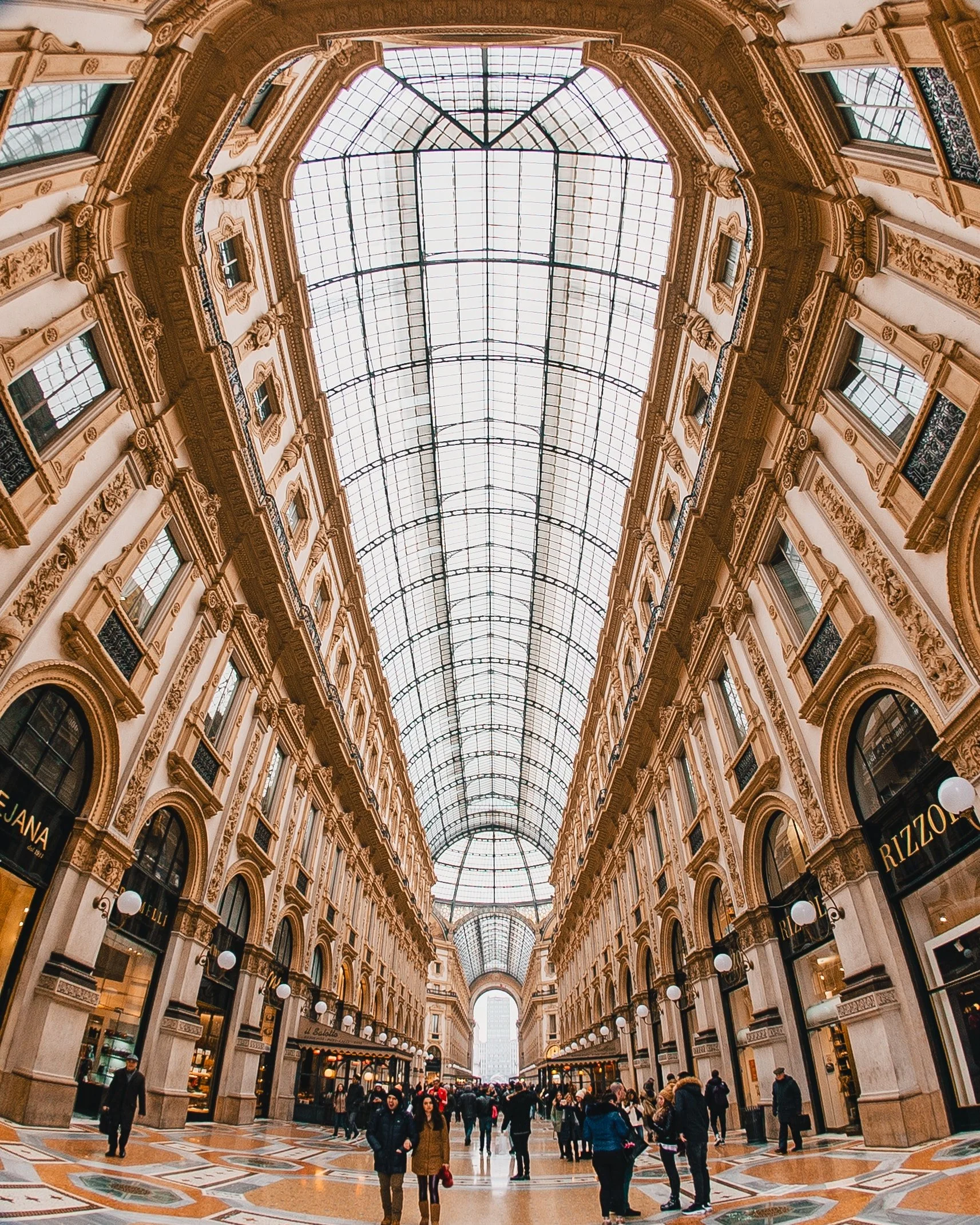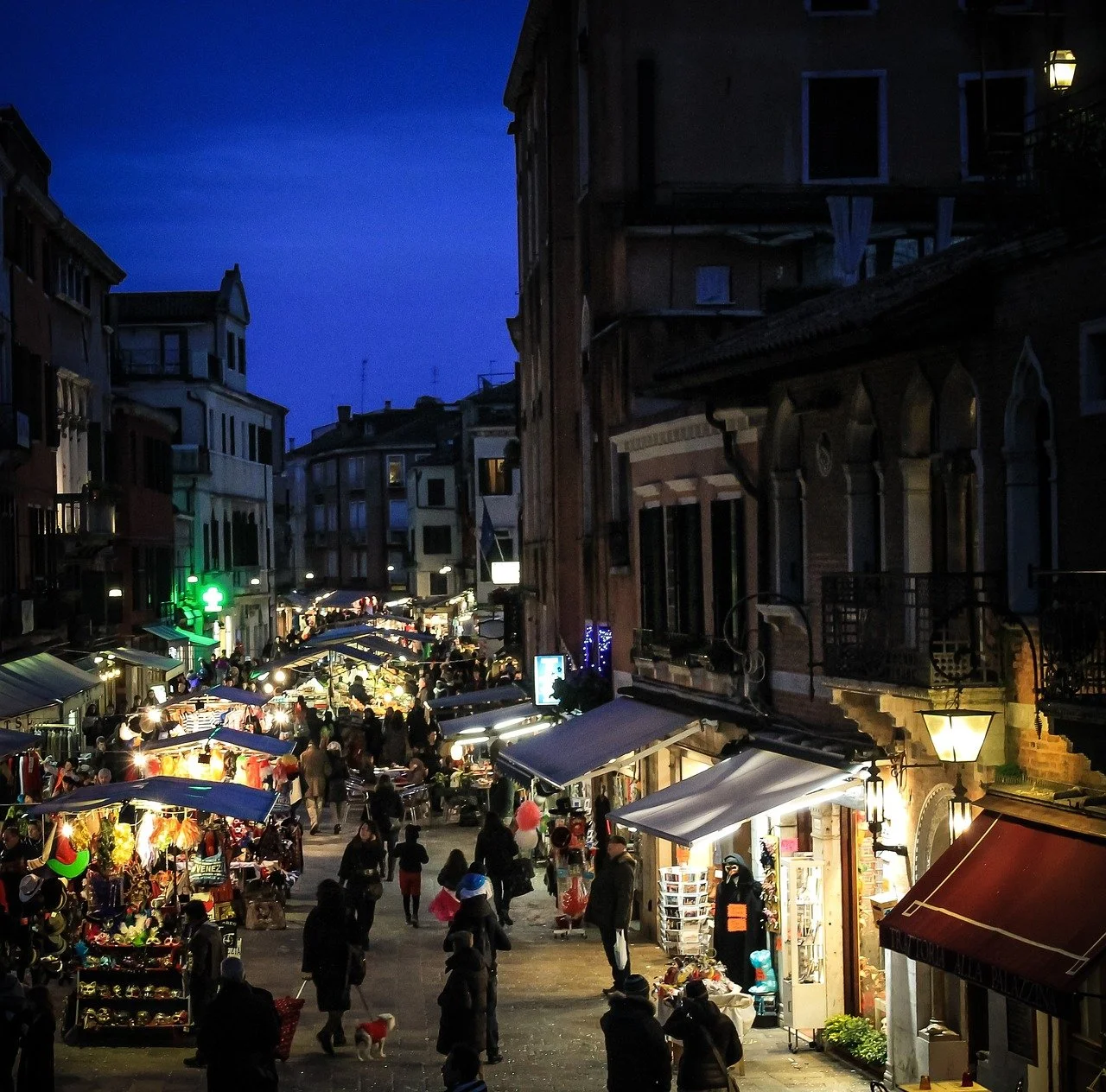If you're interested in learning Italian, shopping and bargaining can be a great way to practice your language skills while also getting some great deals.
1.Basic vocabulary
In any language, it is crucial to start with the basics. Familiarize yourself with the Italian words for different types of shops and products.
Here are different types of Italian shops you might encounter:
Abbigliamento (Clothing): Shops dedicated to clothing, ranging from high-end fashion boutiques to more casual and affordable options.
Calzature (Shoe Stores): Stores that specialize in footwear, offering a wide range of shoes for different occasions and styles.
Ottica (Optical Shops): Shops where you can find eyeglasses, sunglasses, and contact lenses.
Alimentari (Grocery Store): Small grocery stores that provide a selection of fresh produce, and often local specialties.
Supermercato (Supermarket): Larger grocery stores that offer a broader range of products, including fresh produce, dairy, meat, and household items.
Profumeria (Perfume Shop): Stores specializing in fragrances, cosmetics, and beauty products.
Libreria (Bookstore): Shops dedicated to selling books, including both mainstream and niche genres.
Elettronica (Electronics Store): Stores that sell electronic gadgets, appliances, and other tech-related products.
Farmacia (Pharmacy): Shops where you can purchase over-the-counter medications, personal care items, and health-related products.
Fioraio (Flower Shop): Florists offering a variety of fresh flowers, bouquets, and floral arrangements.
Gioielleria (Jewelry Store): Shops specializing in jewelry, including rings, necklaces, bracelets, and other accessories.
Arredamento (Furniture Store): Stores that sell furniture and home decor items, ranging from classic to contemporary styles.
Artigianato Locale (Local Craft Shops): Boutiques showcasing handmade and locally crafted items, reflecting the rich artisanal traditions of different regions.
Vini e Liquori (Wine and Liquor Stores): Shops where you can purchase a wide selection of Italian wines, spirits, and liqueurs.
Mercato (Market): Open-air markets where you can find a variety of goods, including fresh produce, clothing, accessories, and more. These markets often allow for bargaining.
Negozio di abbigliamento sportivo (Sportswear Store): Shops specializing in sportswear, athletic shoes, and equipment for various sports.
Musica e Strumenti Musicali (Music and Musical Instruments Store): Stores selling musical instruments, sheet music, and audio equipment.
Expand your vocabulary by learning the names of common items you might encounter, such as vestiti (clothes), scarpe (shoes), and borse (bags).
Below are some useful examples.
Abbigliamento (Clothing):
La Camicia (Shirt)
I Pantaloni (Pants)
Il Vestito (Dress)
Il Maglione (Sweater)
La Giacca (Jacket)
La Cravatta (Tie)
Il Cappello (Hat)
Calzature (Shoe Stores):
Gli Stivali (Boots)
Le Scarpe da ginnastica (Sport shoes)
I Sandali (Sandals)
I Tacchi alti (High heels)
I Mocassini (Loafers)
Ottica (Optical Shops):
Gli Occhiali da sole (Sunglasses)
Gli Occhiali da vista (Eyeglasses)
Le Lenti a contatto (Contact lenses)
Alimentari (Grocery Store):
La Frutta (Fruit)
La Verdura (Vegetables)
Il Pane (Bread)
Il Formaggio (Cheese)
La Pasta (Pasta)
L’Olio d'oliva (Olive oil)
L’Acqua (Water)
Profumeria (Perfume Shop):
Il Profumo (Perfume)
Il Deodorante (Deodorant)
La Crema idratante (Moisturizer)
Il Bagnoschiuma (Body wash)
Libreria (Bookstore):
Il Libro (Book)
La Rivista (Magazine)
Il Quaderno (Notebook)
La Penna (Pen)
La Carta (Paper)
Elettronica (Electronics Store):
Lo Smartphone (Smartphone)
Il Laptop (Laptop)
La Fotocamera (Camera)
Le Cuffie (Headphones)
Il Caricatore (Charger)
Farmacia (Pharmacy):
Il Medicinale (Medicine)
Il Cerotto (Band-aid)
L’Aspirina (Aspirin)
Fioraio (Flower Shop):
Il Fiore (Flower)
Il Bouquet (Bouquet)
Il Vaso (Vase)
La Rosa (Rose)
La Margherita (Daisy)
Gioielleria (Jewelry Store):
L’Anello (Ring)
La Collana (Necklace)
Il Bracciale (Bracelet)
Gli Orecchini (Earrings)
L’Oro (Gold)
L’Argento (Silver)
To successfully navigate the shopping scene, arm yourself with those important key phrases:
Quanto costa? (How much does it cost?) - Essential for asking about prices.
Posso aiutarti? (Can I help you?)
Come posso aiutarti/aiutarla? (How can I help you?)
Potrebbe aiutarmi? (Can you help me?) - Useful when you need assistance in a store.
Cosa stai/sta cercando? (What are you looking for?)
Dove posso trovare….? (Where can I find….?) - Helpful when you can't find something.
Vorrei comprare... (I would like to buy...) - Useful for expressing your intention to purchase something.
2. Bargaining
One of the most important aspects of shopping in Italy is bargaining. Unlike in the United States, bargaining is a common practice in many parts of Italy, especially in markets. It's considered normal to negotiate and try to get a better price or a small discount.
Here are some useful phrases and strategies for bargaining:
Posso avere uno sconto? (Can I get a discount?)
È il miglior prezzo che puoi offrirmi? (Is this the best price you can offer me?)
È troppo caro. (It's too expensive.)
Posso pagare meno? (Can I pay less?) - another useful phrase when aiming for a better deal.
Now that you have some useful phrases for bargaining, here are some general tips to help you get the best deal.
Show interest. (Mostra interesse). Demonstrating a strong interest and enthusiasm in the item you want to purchase, can work in your favor. Sellers may be more inclined to offer a discount if they see your genuine interest.
Be polite and friendly. (Sii educato ed amichevole). Politeness and friendliness can make a difference! Being friendly and respectful can create a positive atmosphere and potentially lead to better deals.
Know the value of the item. (Conosci il valore dell'oggetto). Before starting your shopping adventure, research the approximate value of the item you’re interested in. This will give you a better idea of a fair price and help you negotiate effectively.
Be prepared to walk away. (Sii pronto ad andare via). Sometimes, the best bargaining tactic is being willing to walk away if the price isn't right. This can motivate the seller to reconsider their offer and potentially give you a better deal. It really works in Italy😊
The verbs "comprare" (to buy), "pagare" (to pay), and "chiedere" (to ask) are your allies in any shopping situation. Learn how to conjugate them in different forms to express your needs effectively.
My tips😊
Practice often this basic vocabulary:
Quanto costa? (How much does it cost?)
Qual è il prezzo? (What's the price?)
C'è uno sconto? (Is there a discount?)
Ci sono delle offerte speciali? (Are there any special deals?)
Remember about bargaining tips.
By using these phrases and strategies, you'll be on your way to becoming a skilled shopper and negotiator in Italy. It helps you to feel more confident when shopping and bargaining and enjoy the local culture.
Buona fortuna (good luck) and happy shopping!










